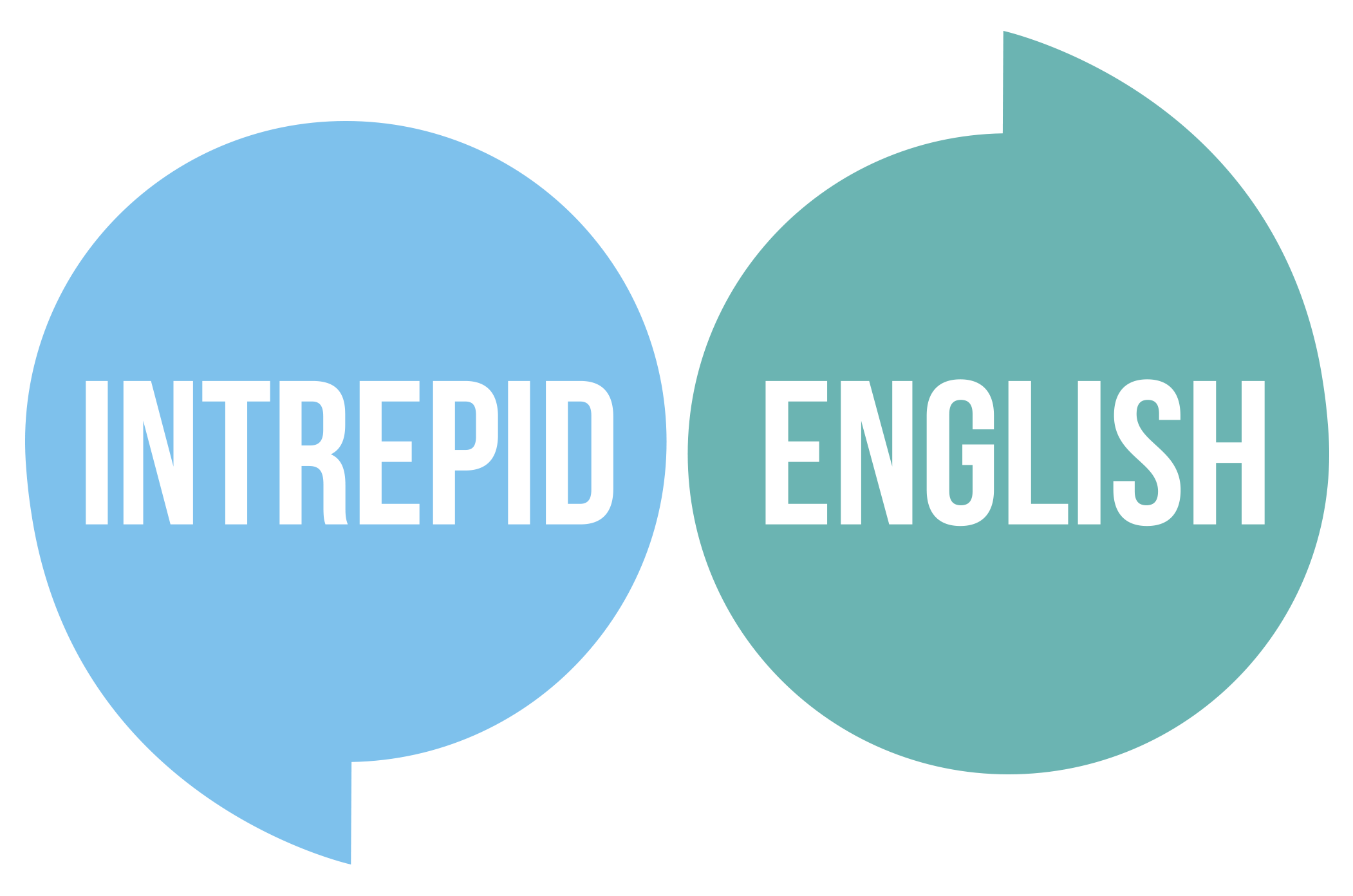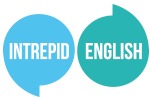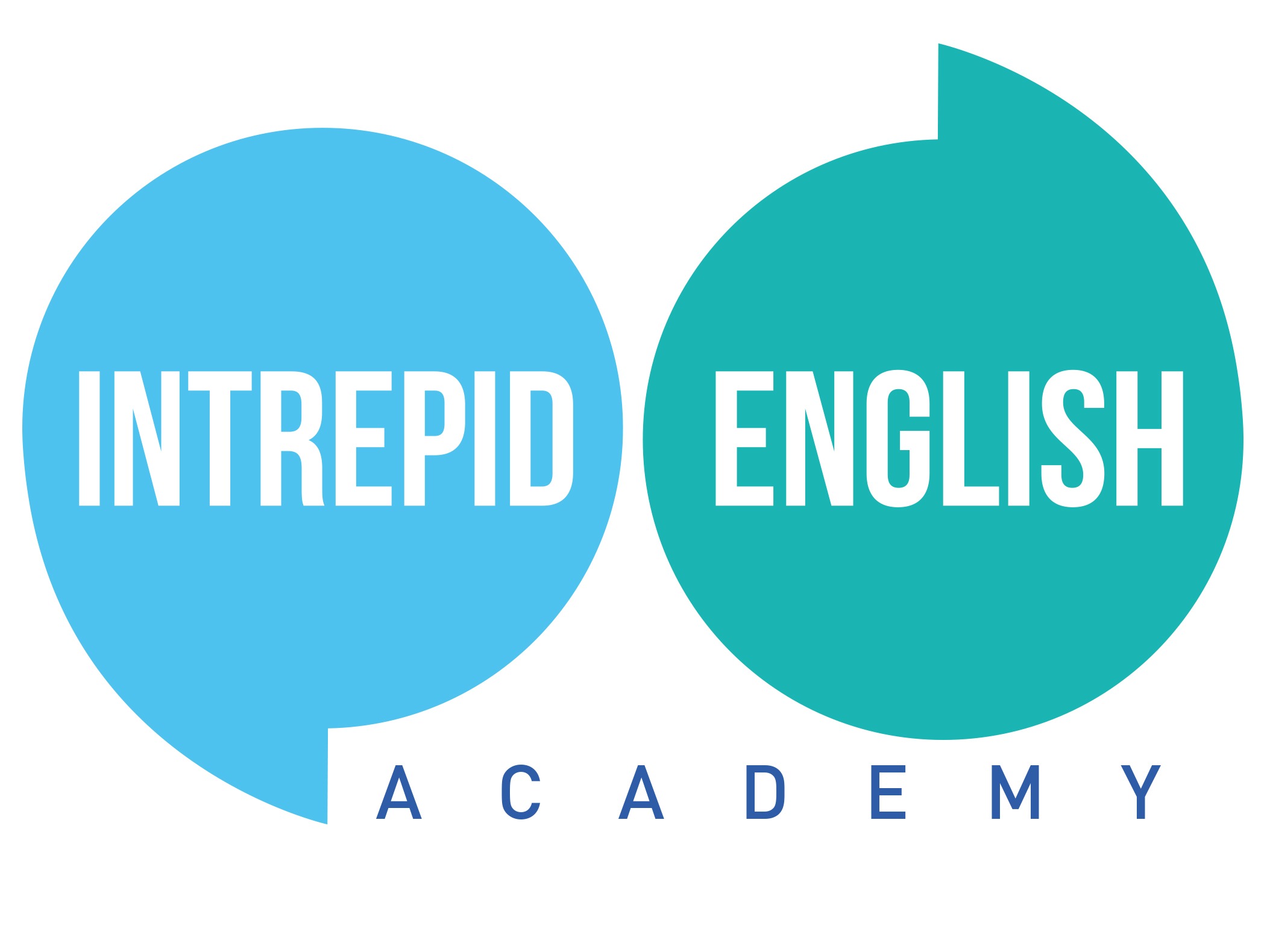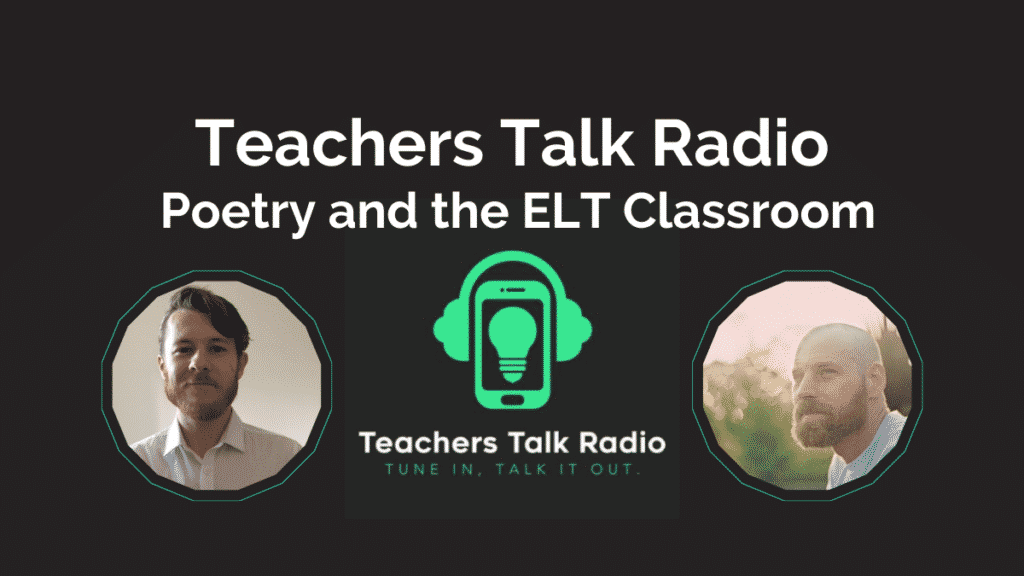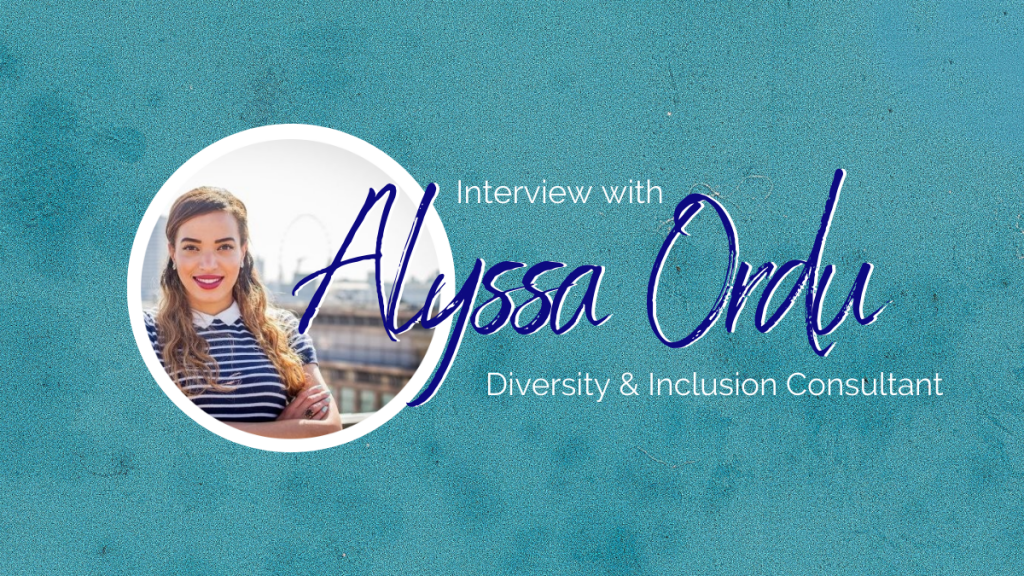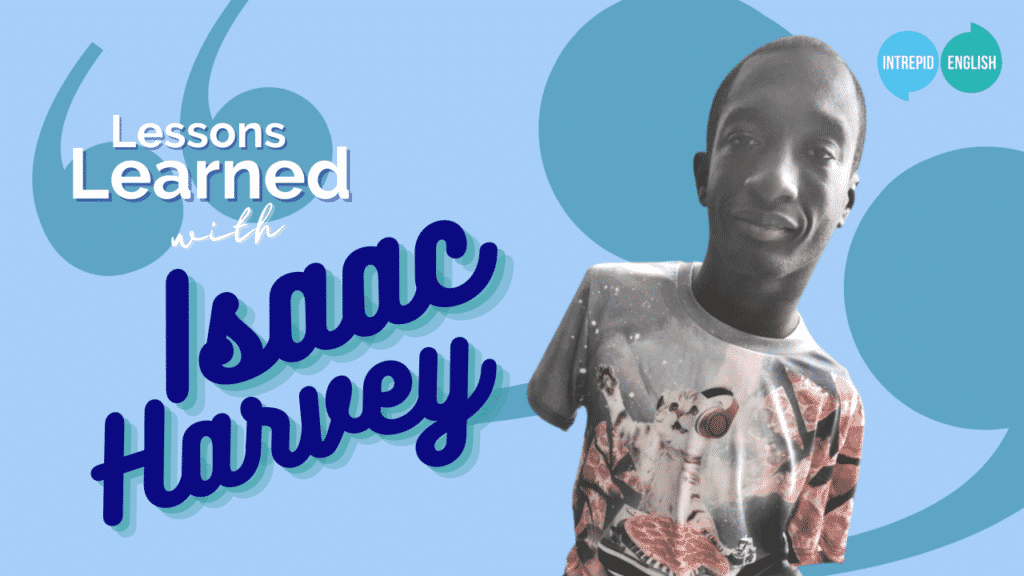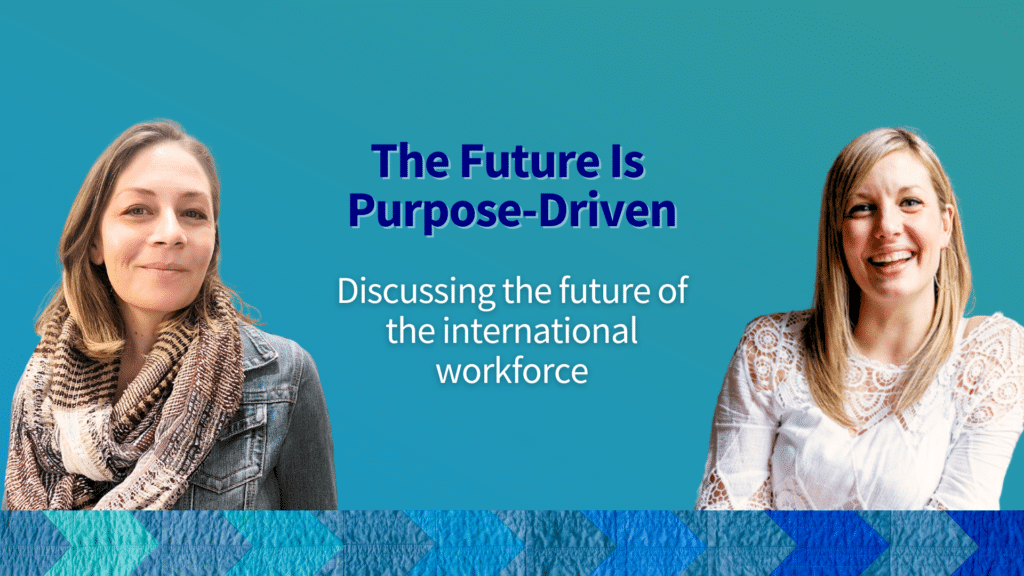Teachers Talk Radio Interview: Empowering English Learners – Part One
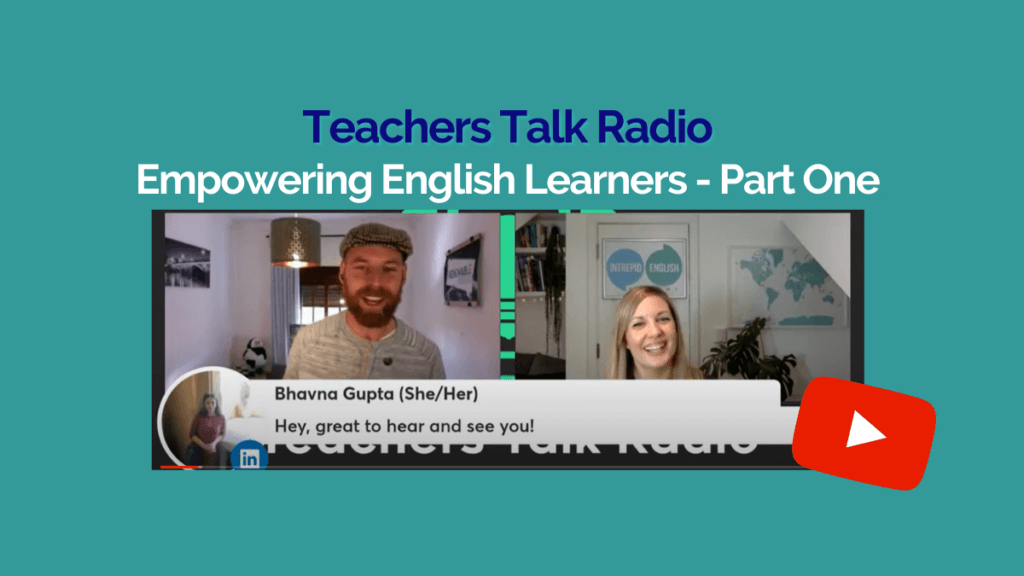
A few months ago Lorraine appeared on Teachers Talk Radio with her friend Harry Waters of Renewable English to chat all about empowering English learners! You can listen to the conversation on the Intrepid English Podcast on all good podcast apps, or check out the video recording and transcripts right here on the blog. We’ve split it up into three parts. Here is part two, and here is part three. Enjoy!
Harry Waters 00:10
Hello everybody, and welcome. We are live! We are Teachers Talk Radio, we are also Teachers Talk Radio TV. So wherever you are listening from, wherever you’re calling in from, you can also now see us on LinkedIn, you can see us on YouTube, you can see us everywhere. So I’d like to say hello to everybody. Today is a very, very special day for me. In fact, it might be the most special day of all time for me. It’s the second of the second 2022. And for those of you that know me, you will be well aware that my favourite number is 2222 – two thousand two hundred and twenty two. There’s a bit of a story behind this. Back when I was at high school, many, many, many, many years ago, I went on a school trip. And on the way back, we drove past, we were on a train, we went through the train station. And as we got off the train, we saw the the sign, the clock, the big yellow clocks that you get in English train stations, and it was at about 22:21. And we waited and waited and waited for the last minute. And then we got a great photo on an old school camera of it all 22:22 with 22 seconds as well. So that was rather marvellous. And since then it’s just a number that seems to have followed me and my two best friends around the entire planet basically. So it’s something I even connect with my good friends about and we send messages to each other. It has just become, you know, time, now. But that is something that is super special so today I’ve just been absolutely buzzing all day. Because it is a bit special to me today. 22/22. And something great about that is I do have a very special guest who is going to call in ever so shortly. I’ve got her queued up ready to go live on the TV as well. She’s about to call in live to the pod bean. I believe I can see her in there but sometimes on podbean they give you a bit of a funny name, and I think her name might be QFCEUJ… ah, it is her there. I’m going to invite her in as a guest. That is her. I couldn’t tell if Lorraine was QFCEUZJA, a fantastic name if she were a Scrabble word, that’s for sure. So I’m going to invite her in as a speaker and give her a very brief introduction as she will be introducing herself as well. It is Lorraine from Intrepid English. She’s here to join us. And I’m going to hand over to her to introduce herself a little bit deeper than that. Lorraine, hello, how are you?
Lorraine Venables 03:17
Hi, Harry. I’m very well, thank you. Thanks for inviting me on today. Yes, to introduce myself, I am the founder of Intrepid English. For those of you who are watching, there’s a sign behind me. And yeah, we are an English language school based online and we empower English learners to speak with confidence, ace their exams, succeed at work and improve the quality of their lives. So that’s our little school. But yeah, it’s a bit of a controversial one, Harry because I’m actually a fan of 11:11 so we’re in different camps here. I’m afraid I don’t have the same feeling for 22:22 but I’m here to celebrate with you today.
Harry Waters 04:05
I’m not going to say that doesn’t hurt. It definitely hurts. That one, it cuts deep. Now I’ll be honest, I don’t dislike 11:11, I just like 22:22 more. I like it so much everyone watching can, you know, if I put it a bit closer there. I can’t angle my body properly for that. I haven’t been doing enough yoga this week. I do have a tattoo of it as does my best friend Tommy who was a guest a little while back actually. He’s a music guy and, I was going to say ‘teacher’, but he’s not. He’s more like Jack Black in School of Rock. Just a little bit more handsome. Nothing against Jack Black, I think he’s brilliant. So you mentioned Intrepid English. I feel a bit like an Intrepid English teacher. Not working for Intrepid English, I just feel like I am intrepid, and I’m an English teacher. I think it’s a fantastic name by the way. I remember seeing it a while back, probably on LinkedIn and just being like, ‘That’s a brilliant name’. And I just kind of like, zoomed in on it, I honed in on it, and from then I’ve been following… Hiya Bhavna! Lovely to see you. Bhavna is also a previous guest. Lovely to see you again. I saw it and I honed in on it. And I think LinkedIn is like, my… Do I want to call it my…? It’s my favourite social network.
Lorraine Venables 05:37
Oh, yeah.
Harry Waters 05:38
It’s great. And I think from that moment on I saw you and I followed you there as well. In a completely non-creepy, professional way.
Lorraine Venables 05:46
You keep saying that, Harry, but… The more you say it, the creepier it sounds.
Harry Waters 05:50
it does sound creepy, doesn’t it? I’m gonna just stop saying it now. Stop saying that creepy thing.
Lorraine Venables 05:58
You don’t come across as creepy until you mention it.
Harry Waters 06:01
I’m just gonna stop. I’m giving up on saying that from now on. I’m just gonna go with “I saw you on LinkedIn”. And yeah, I saw, you know, what Intrepid English does and I really like the whole idea behind it and the ethos behind it. But before we get into that ethos, I want to know about you. You! So, you know, everybody’s heard about my journey as a teacher. What about your journey as a teacher?
Lorraine Venables 06:32
Well I started teaching in Germany, mainly because it was actually one of the few options that was available to me, considering my German wasn’t great when I first moved there. So I took my CELTA course in Hamburg, and then I started to enjoy it, only after that. I kind of accidentally fell into it as a career. But quite soon really, really started to enjoy myself. So I was working in Germany for three years in Cologne, and decided that if my career were to progress at all, I’d need to be back home in the UK really, set up my own business, and yeah, build a business basically, not just teach by myself. So I moved back to the UK, and my lovely parents set me up in their spare room. I love this story, and my dad always reminds me of this as well, but they made me a desk out of two bedside drawers and a door. An old door. Like, it was really old school. So, my internet strength was like, two, as well. It was really, really weak. I had one student for a month or so, and then it started to pick up a little bit more. And that was in 2013, so things have come a long way since then and Intrepid English has grown, not just in terms of the students, but also the teachers that work for us. And yeah, we’ve got a lovely, lovely team of teachers who work for us now. And it’s… my job has evolved a lot in that time from just being the the only teacher, to being, sort of like a mother hen to all my teachers that work for me. But it’s just a generally really enjoyable place for us to enjoy day to day but also our students say that they really enjoy the the atmosphere, you know, because it’s a bit like a family in a way. I know that sounds really cheesy, but it kind of is. So yeah, that’s my journey in a nutshell.
Harry Waters 08:48
Oh, wow. I like how you went to Hamburg and Cologne, like, you know, so you go to the two places that have got things named after them. Hamburgers, and obviously, you know, perfume.
Lorraine Venables 09:01
Easy to remember.
Harry Waters 09:02
And how’s your German now?
Lorraine Venables 09:04
Oh, that’s one of my teachers who’s just tuned in! It’s Thomas. Hi, Thomas!
Harry Waters 09:08
He likes poetry, doesn’t he?
Lorraine Venables 09:10
Yes, he does. He doesn’t just like it. He is a poet. Well, I could just talk about Tom all day long. He has the best voice in the world for a start up. He’s a wonderful teacher. And Tom actually trained me on live events. He’s a seasoned professional when it comes to live events because of all his writing and poetry and stuff. So it’s really nice to have him here just hovering in the background. Thanks, Tom.
Harry Waters 09:34
He also has an exceptional beard. Now, you know, I’m not going to rant and rave too much about exceptional beards, but people with exceptional beards tend to be exceptional people. That’s just a personal opinion. I don’t know where that opinion came from. But it definitely came from somewhere. Now I saw today he mentioned something about poetry. I actually had a guest a little while back, Dave Boden the word ‘guerilla’ or word ‘gorilla’, as we would say, in English. And he’s also a poet, so I should speak to Thomas as well I guess.
Lorraine Venables 10:10
You definitely should.
Harry Waters 10:11
Also, if he’s got a lovely voice, you know, perfect for radio.
Lorraine Venables 10:15
Get him on the show, Harry, he’s great. He’s so chilled as well. I tell you what, though, his rule for live events, and unfortunately, I haven’t followed this rule today. So, fingers crossed it goes well, is to have a glass of wine. So it’s actually only four o’clock in the afternoon where I am. So I don’t have a glass of wine, I have a coffee. So that’s, that’s gonna keep me going for now. Oh, very nice, on brand. I have to remember that we’re actually on the radio as well as on the TV and people can’t actually see everything as well. So if you’re listening on the radio, you should definitely tune in and see us on the TV.
Harry Waters 10:54
Yeah, I actually have a glass of water as well, to be honest. I’m afraid, much to the disgust of my parents, I don’t drink, which also surprises everybody in Spain. They look, you know, “Do you want a beer, Harry?” And it’s like, “No, I don’t drink.” “But you’re English!” “Yes! And that’s how not all stereotypes work.” But yeah, my parents were big wine lovers growing up. So my way of rebelling against them was for me to say, I don’t drink wine. I’m not going anywhere near it.
Lorraine Venables 11:31
That reverse psychology really worked there. Harry’s parents like, “I hate wine, but hopefully…”
Harry Waters 11:36
Yeah! It didn’t work on my brother or sister, I’m afraid but yeah, it definitely worked on me. Yeah, I was never, never a big fan of drinking. So sorry to disappoint you mum and dad. But I’m on the radio now. So, they’re proud at last! It’s only taken 37 years. I love your story about the desk, moving into your folks’ spare room and building the desk. It reminds me of when I went out to live in Australia for a year while I was on my my world tour stage of being a teacher, before it became a career. And my brother built me a bed out of milk crates, and a mattress that he found in the street. Which at the time was really grimy. But looking back on it with my environmentalist hat on I was like, Well, that’s good that I… you’re recycling somebody’s old thrown away mattress? I mean, yes, sure. That’s definitely fine.
Lorraine Venables 12:48
It’s a nice way to, you know, even at the time when I was starting out with this makeshift desk that my parents made me, at the time I did have, like a realisation, or even just kind of a wish or a hope, that this would be the story that I look back on in years, and talk about, you know, the rags in the in the rags to riches story, you know, kind of thing. It wasn’t even, you know, rags. It was like a really nice spare bedroom in a lovely house in the south of England. But still, I was like, yes, one day, I’ll use this story in my book. I think you were the same with you with your crate bed, right?
Harry Waters 13:24
Yeah, it really brought it back, actually. I haven’t told that story for a while. I’m not sure if it’s the scarring that happened from it. But anyway, it’s yeah, it was, it was definitely interesting. So you were in the south of England, but you’re not anymore, are you?
Lorraine Venables 13:39
No, now I’m in Edinburgh.
Harry Waters 13:41
What made you move?
Lorraine Venables 13:43
I actually lived here years ago. And it was like, right at the start of my, sort of, travelling phase. And I fell in love with the place but it was a very different place for me, then, you know. There were loads of great music venues, you know, the festival came every year. Obviously, everywhere has changed a little bit because of the pandemic, or a lot. But Edinburgh now is a very different place. So for me in the way that I approach it, you know, it’s much more about, you know, seeing the nature around and, you know, architecture and that kind of stuff, and literature and things because it’s a UNESCO City of Literature. But yeah, I was here years and years ago, and I thought this is really great but this is one of the first places I’ve lived. I need to go out and see the world. You know, this can’t just be it. So, yeah, I carried on travelling around. But when I was living here before, my sisters came up to visit me, and my older sister stayed here, and she’s been here ever since then. So just about a few years ago when my older sister was about to have my niece, I was like, now’s the time. This is a sign. I’m going to go back. It’s my spiritual home and yeah, I’m really, really glad I did. But I’m glad I got all of that travelling out of my system before I came back here. So, yeah.
Harry Waters 15:06
Definitely. I feel that it really helped me, sort of travelling around to when it came to settling down. It was easy enough, you know, because I’d seen some things and it was like ‘Oh, yeah. I can stop now’. I was forced to stop. I didn’t really want to stop. But that’s a whole different story, that I’m sure we’ll get into another day. But yeah, then when I stopped I was like, ‘Well, I have seen stuff. So I guess it’s okay’. And Edinburgh is… I love Edinburgh. I think it’s beautiful. And it’s also… it was the source of one of my very early pronunciation things. Because obviously, you don’t say ninety percent of English, Scottish, British, you know, Welsh, Irish places the way they’re written. So one of my early obsessions back when I was studying for the Delta in 2013. So back when you had your door desk.
Lorraine Venables 16:04
Door desk, hmm. It’s a new word.
Harry Waters 16:09
I’ve invented that one. Nice bit of alliteration. Yeah, so I was studying pronunciation and I got a bit obsessed by pronunciation, but I got really angry with the other people on the course who got, you know, so obsessed with like TEFL talk. You know, when people just, you know, TEFL people have to use all the TEFL words. So, ‘I’m going to use all the words! This is how I’m going to teach it’, and you know, there were like, ‘Oh I had a class today and they just didn’t get it when I was talking about elesion.’ And it’s like, well, I don’t really get elesion. You know, when you talk about how things go together or connected speech even, like, you know, when you make it a bit… break it down a bit. So I got really upset by all that, kind of, TEFL talk to do with pronunciation. Hello, Vanessa. Brilliant, brilliant. She is amazing. She’s one of my marigolds, as is Bhavna actually, who was on before.
Lorraine Venables 17:06
Oh, cool. You’ve got a great crowd here today then Harry. Hi, Vanessa!
Harry Waters 17:10
An excellent crowd. I did a storytelling in Rome in her academy the other day, actually, ‘The Gruffalo’s Child.’ But there you go. If you ever want storytellings, you know where to call. Thomas. He’s probably better than me. But yeah, so I remember I got really into pronunciation, but I wanted to break it down and make it, like real. And not just all TEFL talk and phonemic script and stuff like that. And Edinburgh was actually my inspiration because obviously you don’t say Edinburgh, the way you write Edinburgh. And it kind of led me down this rabbit hole of pronunciation of British town names. And yeah, I created this whole thing.
Lorraine Venables 17:57
There are some great town names. Especially up here in Scotland, I can’t pronounce them, really. It’s up there with French for the number of silent letters. It’s like, ‘what?’ And you hear someone say it and it’s like …? I have no idea, just to read it.
Harry Waters 18:14
Exactly. And I remember we went back to the UK once with obviously with my wife. I think we had our daughter then, but we were going to Bristol where my sister used to live. And we took a wrong turning and my wife, who is Spanish, but she grew up in Australia, she said, “You need to take the ‘Glow-sester’ road”, and I just fell about laughing, you know? I was like, “‘Glow-sester!’ Ha! It’s ‘Gloucester’ obviously! Hahaha.” Which was awful of me. I shouldn’t have done that. I don’t think I’d do it again. Because not long afterwards, we went on holiday to Norfolk to a place called ‘Snett-sum’. But the whole time I was like, “Yeah, we’re going to ‘Snettisham’, you know, ‘Snettisham’. We’re going there.” We got there and some guy, we’re on a tractor ride around the farm and he’s like, “Welcome to ‘Snett-sum’.” And my wife just looked at me and was like, “Hahaha. It’s not ‘Shettisham’!” I guess I deserved that.
Lorraine Venables 19:16
Touché.
Harry Waters 19:16
Yeah, that was a year in the making but I definitely deserved it. So, you know, she got me which was fair enough, fair play to her. So yeah, pronunciation was something I got really obsessed with, and Edinburgh was my, kind of, my calling for it. But yeah, I find it a very important thing but something that students really obsess about. I don’t think students often realise the difference between pronunciation and accent. Do you have that issue with any of your learners?
Lorraine Venables 19:48
Well, in my opinion, there isn’t, you see, a lot of English learners, understandably, they think that, you know, received pronunciation is the goal. And this is what they want to achieve. But in my opinion, there are so many different accents that are beautiful. And variety is always the spice of life, in my opinion. With pronunciation I really, my approach is to, ooh, we got a lot of hearts on the screen from that one. Yeah, I always like to break down British English into the individual phonemic symbols. Okay, not that I teach the phonemic symbols necessarily, I don’t think that’s necessary. But I always try to break it down into the individual sounds, so that students can really get a sense of things like voiced and unvoiced sounds, and longer and shorter vowel sounds, things like that. Only because quite often, if, for example, I’ll take a lesson that I had yesterday, a student was trying to say ‘reviews’. And he said, ‘refuse’, which is very similar, but obviously, it’s a different word. So trying to explain to him. Yeah, he’s a German guy as well, so the V and the W always quite a sticky point for him. So what we did is we went right back to the individual sounds, the difference between F and V. And we, once we really broke that down and focused on those two areas, he was much more able to hear the difference. And then he could create the difference in his speech. But I always say, you know, this is one of many, mine is one of many accents. And it’s kind of a hybrid. People can’t normally place me, but I was born in Coventry. But over the years through travel, my accents got a little bit of a hybrid kind of, I don’t really know what it is anymore. And you know, when I’m teaching lower level students, I’ll really slow down, and I’ll really try to, you know. As they say, my ‘queen’s voice’, my friends who’ve heard me teach or my partner, they call it my ‘queen’s voice’. But it’s just because it’s easier for them to understand. But I do believe that there are many beautiful accents in the British Isles alone and when students can learn, sort of, a general pronunciation rule which really helps them, from there, they have the creativity to apply their own personality to the words a little bit more. But yeah, I think that opinion comes from the fact that, you know, when I grew up, in Coventry, I had a really thick, Coventry accent, and it’s quite easy to tease people with that accent, you know. It’s not quite Birmingham in terms of bad reputation, necessarily for accents, but I would get a lot of teasing for it. So whenever I moved to a different place, I would sort of absorb and, you know, adopt the accent there, which is why my voice is now quite hybrid. But that apparently, according to one of my uni tutors, is a survival mechanism, in a way. You need to assimilate to a place. You need to fit in. So that’s why I do that now. But I also want to show my students, you know, speak in a way that expresses who you are. If that’s very melodic, great. You know, if that’s slower, that’s fine. If it’s faster, make sure it’s articulate, make sure you enunciate clearly, but I never say this is the correct way. And everything else is wrong, you know.
Harry Waters 23:33
Absolutely. Yeah, I mean, that whole, for me, you know, getting them to, you know, enunciate properly and use whatever rhythm they like to use. I find it super important, but yeah, I’ve had so many students come to me saying, you know, I want to sound English, I want to sound American. And I say to them, you don’t need to, you know, it’s actually much better for you to have your Spanish accent when you’re speaking English because it shows that you’ve made that effort. You know, I definitely don’t sound Spanish when I’m speaking in Spanish. Like, don’t get me wrong, I speak Spanish fairly well. I do all right. But I’ve got a foreigner’s accent when I speak Spanish. But I like that, because, you know, it shows who I am. It shows where I’m from. And it shows that I’ve made the effort to make a difference and to try and speak with, you know, a different language and I think, you know, some people often kind of forget that and they get lost in this whole I want to sound English. You don’t need to sound English, you need to be intelligible.
Lorraine Venables 24:36
That’s the thing. It’s the disconnect between desires and needs there. When I have a student who, they normally start the conversation like that, you know, ‘Hi Lorraine. I see you’re an English teacher. I want to sound like a native speaker’ or ‘I want to be fluent.’ And there are a couple of things that I will recommend to these students. Firstly, it’s really difficult to know when you’ve achieved those goals, right? They’re not specific enough for you to be able to go ‘yeah, tick! I’ve done that’. And secondly, because they’re quite lofty goals normally, from where the student’s at at that time, they feel frustrated up until the point at which they have, in their view, achieved this point, which, they never will reach it because it’s so vague. So what I say to them is, firstly, what do you really need to get out of it. So they say they want to speak like a native speaker, but what they need often would be something like, I need to be understood, or I want to be taken seriously at work, or I want to get a band nine in the IELTS exam. When you break it down like that, it’s much more specific. And then you can set SMART goals. So I don’t know if you’re a fan of SMART goals. But for those who are listening or watching who don’t necessarily know what those are, this stands for specific, measurable, achievable, relevant and timely. So whenever a student or a friend of mine or even me, when we’re setting goals now, I always try and follow that framework. Specific being, you know when you have actually achieved it, you know. Measurable? I mean, you can look at that from two different points of view, you know, the end goal, sure. Or do you know if you’re going in the right direction there, if it’s measurable. Am I halfway there yet? Achievable. It’s got to be something that you can achieve, right? A goal, which is too lofty, doesn’t help anyone. And, yeah, where are we SMA R – Relevant. So it’s got to be something in the general direction of where you want to go. So having the goal to improve your German, for example, won’t help you if your end goal is to get a nine in the IELTS exam. And timely, you need a deadline, right? And in my opinion, the smaller the goals, the better. So this is one of the reasons why I’m not really one of those people who sets new year’s resolutions, because I’m setting monthly resolutions instead, or weekly ones, mainly because it’s just more satisfying. Who wants to get to the end of the year and be like, ‘Yeah!’ It’s like, I want that payday every month. You know, I want that feeling of satisfaction every month where I’m like, yes, I’ve done that thing. But quite often, it’s, I didn’t quite make it. I’m going to adjust next month’s goals to line up with that.
Harry Waters 27:35
Oh I know that feeling. I have like short, medium and long term goals as well. My short term goals often come along with me, you know, because maybe I haven’t done them properly. You know, I want to do that. I kind of want to do that. So I don’t. But I like to keep it there on the page with me. So I know that I do still want to do it. But maybe it’s not, you know, high up on the list of…
Lorraine Venables 27:58
Not just yet.
Harry Waters 27:59
Yeah, exactly. But it’s a short goal. And I can do it. But yeah, maybe it’s not, you know that high on the list of priorities. So maybe it’s not really realistic.
Lorraine Venables 28:09
There’s also the other factor, which is, it sounds so simple, but it was really sort of, it was an epiphany for me when I realised this. Oh, and sorry, if you can see the horrible bruise on my arm, by the way, that’s from my roller skating on Sunday. So, apologies.
Harry Waters 28:23
I could only see it because you held it right up to the camera.
Lorraine Venables 28:25
Oh, really? OK. Well, that’s another story! Yes. So, how many goals do you have, which are not really that important to you, but you think you should achieve them? And my wonderful mentor, Alice Thompson, she always says you should stop ‘shoulding’ all over yourself. You know, I always tried to think to myself, do I really want to achieve this goal? Or do I just think I want to achieve this goal? Or, do I really want to achieve this goal? Or do I want to be the person that would like to achieve that goal, you know? And then, you know, sometimes I’m like, no, so I’m not going to put pressure on myself to achieve that. If that makes sense.
Harry Waters 29:08
Move it to one side.
Lorraine Venables 29:10
Yes, exactly. But going back to this, you know, the English learners who have these lofty and vague goals purely because maybe they don’t know this SMART goal approach yet. You know, I always like to say to them, you know, do you really want to achieve that goal? Or do you want, you know, the goal of speaking English like a native speaker, or do you want to speak English, but have your personality in there and be able to express yourself clearly, and, you know, share your unique opinions and have originality in your work and things like that. And often that will really help them to really define what they want and what they don’t really need. Hi, Phil!
Harry Waters 29:57
Hello, Phil! It’s lovely to have you. Lovely to have you watching us for your first time ever. It’s my first time doing this ever as well so it’s quite exciting to have you here. And brilliant to have lots of other people here listening in as well. We’ve got Libby and Dorian, we’ve got Nicolas, we’ve got EJMU… we’ve got some people there that I’m not really sure who they are. But yeah, thanks everybody who’s tuned in and do hang out, we’re gonna we’re gonna listen to the news now and we’ll be back very shortly so stay where you are. Stay seated. Keep your headphones in. We’ll be back very shortly, but we can head off for the news.
Thanks for subscribing to our newsletter!
